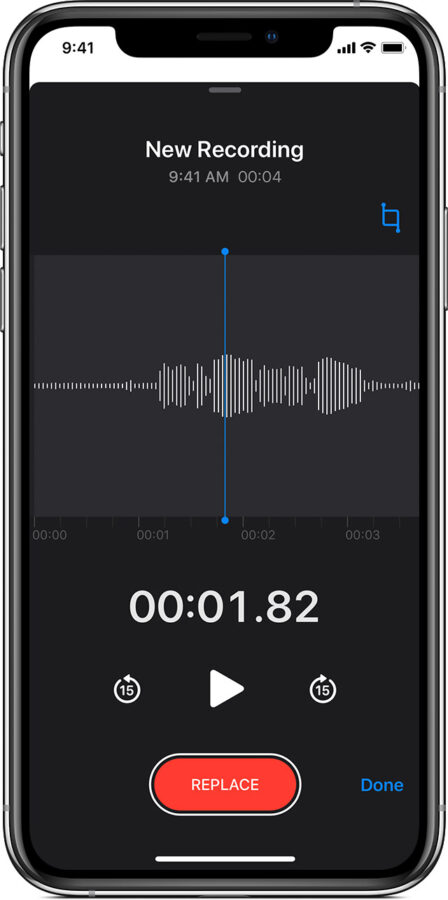
Medical appointments can be tricky to handle, no matter how many you've had! These tips from healthcare professionals will help you feel confident to ask for what you need
Your first appointments
If you haven’t yet got a diagnosis, then your first appointments are likely to be with your GP.
GPs only spend an average of 8-10 minutes with patients – so you’ll need to be prepared and focused in order to get the most out of your time. However, some GPs will offer longer appointments for patients with complex problems so there is less pressure of time. You can absolutely ask them about this if you feel you will need it.
Plan ahead, but not too much!
Being prepared is one thing, but remember, Google is not a doctor.
Dr Bruce Woodhouse, a GP in North Yorkshire, says: “It is great to do a bit of planning and ‘homework’ about what you think may be wrong but be careful of internet ‘rabbit holes’ and it is important to keep an open mind. Your GP will have a long list of possibilities to consider and explore and it is important they get all the information and consider the next steps without you both leaping to one conclusion.”
 Writing down a list of things you want to cover and discuss before any appointment is a good idea. Don’t be afraid to check through it as the consultation progresses.
Writing down a list of things you want to cover and discuss before any appointment is a good idea. Don’t be afraid to check through it as the consultation progresses.
Think about your symptoms and how you can best describe them to your doctor. “One of the best ways to describe symptoms is by describing the impact they are having on normal life; things like sleeping, washing and dressing, exercise, work tasks etc,” says Dr Woodhouse.
“Some people find it helpful to describe pain or symptoms on a sliding scale of 1 to 10 where 10 is ‘worst ever’ and one ‘hardly noticeable’.
Think about whether your symptoms seem worse at different parts of the day, or if there is anything that sets them off.
You can also help your doctor prepare for the appointment. Dr Woodhouse says: “If your medical history or situation is really complicated and the GP doesn’t know you well then perhaps ring them in advance or drop them a letter before the appointment. This means they can spend a bit of time with your notes and preparing before the appointment.”
Be prepared for the doctor to ask lots of questions too
Many arthritis conditions are associated with other conditions that are more generalised, so the doctor might ask some questions which don’t seem relevant. Go with it – they are trying to help.
“Don’t be surprised if the GP asks questions about things that might seem a bit odd to you,” says Dr Woodhouse. “It is likely the doctor will examine you, and they may not just want to look at the painful joints but also perform more general examination. It is about trying to narrow down a long list of possibilities.”
If you’re feeling brave, and you want to impress your GP, taking along a urine sample can be really useful! You can collect a specimen pot from your surgery first.
Be realistic about your first appointment
“Your first appointment is unlikely to give you all the answers,” says Dr Woodhouse. However, you will probably come away with an outline plan and some next steps. That might be getting some tests done, or starting some simple treatment.
 Be sure you know what is going to happen next. “It’s important to arrange some follow-up,” says Dr Woodhouse. “Definitely try to book that there and then with the same person if at all possible so you can discuss results and build up a picture together. Continuity helps both of you.”
Be sure you know what is going to happen next. “It’s important to arrange some follow-up,” says Dr Woodhouse. “Definitely try to book that there and then with the same person if at all possible so you can discuss results and build up a picture together. Continuity helps both of you.”
You can ask the GP to write things down for you at the end of the appointment, or they may be able to suggest resources or leaflets that you can read later.
Another follow-up possibility to consider, particularly if you are with a large surgery, is asking if the practice has a GP with a specialist interest in arthritis. “Lots of GPs have extra skills in various specialities and some might actually work in hospital clinics so they will have extra expertise,” says Dr Woodhouse. “Some people will see one GP regularly about their arthritis but another about the rest of their health.”
Referrals – patience is required!
You won’t be surprised to learn that sometimes it can take a while to be referred to a specialist. “It may not be appropriate to be referred at the first appointment,” says Dr Woodhouse. “The GP will need to build a picture perhaps over a few appointments and arrange investigations.
“Many specialist clinics won’t accept a referral unless certain tests or steps have been taken first.”
It is perfectly reasonable to ask for a referral at some point if you feel you are not making progress but remember sometimes it can take a while for appointments to come through. If this is the case, keep in touch with your GP and let them know if anything has changed, or if you have new symptoms. It’s also fine to chase up results to make sure you don’t slip through the net.
“Many clinics will triage GP referrals and decide on urgency themselves rather than on the GP’s opinion,” says Dr Woodhouse. “Specialists do have a lot of experience of this and in fairness must prioritise.”
Specialist appointments
Specialist appointments are often longer, so preparing and planning for these is even more valuable.
Keep making lists and asking questions!
“Patients should be encouraged to bear in mind that no question is ‘too silly’,” says Dr Martin Lee.
 “I would strongly recommend patients come with questions written down so that they don’t forget or feel intimidated (which they shouldn’t). There are means to ask questions outside of the appointment with the doctor, perhaps via email or via a rheumatology specialist nurse.
“I would strongly recommend patients come with questions written down so that they don’t forget or feel intimidated (which they shouldn’t). There are means to ask questions outside of the appointment with the doctor, perhaps via email or via a rheumatology specialist nurse.
“I think a patient-doctor relationship is key, particularly in a young adult age group, as if the patient feels comfortable with their doctor then they are more likely to ask the questions that they really want to. Patient-doctor relationship is something I really try to work on with my patients so they feel relaxed and confident that they can ask questions.”
Julie*, a rheumatology nurse at Airedale NHS Foundation Trust in West Yorkshire, agrees. “Don’t be afraid to ask questions – we say ‘there’s no such thing as a silly question’,” she says. “Write a list of questions you want to ask, don’t be afraid to reel them off. This will help you get the answers you want, we really don’t mind you doing this and writing down answers. It’s your consultation, it’s all about you! Use it well and get the answers and help you need.”
Anoushka Anand, a blogger for Arthur’s Place, agrees it’s really useful to make a list of questions. She adds: “You may also want to put together a second list of any queries that you may have with regard to any medications that the doctor discusses with you, such as the side effects of medications, frequency of when and how often you will have to take the medications.
“Another list you may want to put together is any symptoms that you have had and any recurring issues that keep popping up. Family history is really important, as this will give the doctor a complete picture of your life so that the doctor will then have all the information that is required for a plan of action to be tailored to your specific needs.”
As some conditions fluctuate, it can be really helpful to take photos on your phone beforehand, to show any visible symptoms and how they may change. Make a note if rings or footwear have become tighter than usual at different times of the day. All these things can help the specialist team to build a picture of your condition.
Ask if it’s possible to bring someone with you – or record the appointment
Due to Covid-19, this may not be possible at the moment, but it’s worth asking. It’s not always easy to absorb all the information on your own.
“Pre-Covid I would have always suggested that you bring someone else along to your appointments but this is tricky at the moment,” says Julie.
 However, if you’re not able to take someone along, you can ask your doctor if you can record your consultation. The BMA says this can help patients remember important advice and give them more time to process information, particularly if it is complex. The BMA encourages doctors to support patient requests to record their consultations. For more information click here.
However, if you’re not able to take someone along, you can ask your doctor if you can record your consultation. The BMA says this can help patients remember important advice and give them more time to process information, particularly if it is complex. The BMA encourages doctors to support patient requests to record their consultations. For more information click here.
If, due to Covid-19, you are offered a video consultation, again you can have someone present with you and can ask to record the appointment.
If you are having difficulty understanding what the doctor is saying, speak up.
“During your consultation, if at any time you feel like the doctor is using too many medical terms, then never be afraid to ask for information to be repeated,” says Anouskha. “When I was diagnosed, there was a lot of information being thrown at me and there were certain things I couldn’t understand. It can feel a bit overwhelming, but that is completely normal.”
Appointments with consultants can feel full-on and crammed with information, but they are not the only person in your medical team that can help. You may have specialist nurse appointments too, or a phone line you can call afterwards – ask about this so that you know where you can turn if you think of questions after the appointment.
Be completely honest and open – even if you’re embarrassed about something
If you’ve had too much to drink one night, or you’ve been forgetting to take your treatment, your medical team needs to know so that they can help you. You will not be the first person to say this and you won’t be the last! They are not there to make judgements, but they need to be able to treat you in the best way possible and this knowledge can help.
Julie says: “If you do take recreational drugs or exceed the alcohol guidelines – we need to know. We are human too, we understand – but it is vital we know these things as they can have a huge impact on the way we treat you.
“If you stop taking your treatment or you take it not as prescribed, we need to know too. We won’t get cross or upset but it means we can help you get the best out of your consultation and we can treat you to the best of our knowledge.”
Be clear about what your different doctors are there for
After you have been referred to a specialist, your hospital clinic is likely to take charge of your arthritis treatments. They may be in touch with your GP to pass on information about new medications or other developments, but this can take a few days. Many GP practices have a specific member of staff who gets medication added to prescriptions so you may be able to contact them directly.
 If the specialist arranges scans, X-rays or other tests generally it is their job to give you the results. If you need your arthritis medication changed, you will usually have to go back to your specialist clinic, although the GP may be able to tweak parts of your treatment such as pain relief.
If the specialist arranges scans, X-rays or other tests generally it is their job to give you the results. If you need your arthritis medication changed, you will usually have to go back to your specialist clinic, although the GP may be able to tweak parts of your treatment such as pain relief.
However, don’t forget your GP is still there for all your other medical needs. “Your GP is there for all the ‘other stuff’ such as mental health, sick notes, vaccinations, that infected toenail or your contraception!” says Dr Woodhouse.
“If you have an urgent problem obviously you might need to see anyone on the day but with less urgent issues maybe book ahead and try to see the same person to build your relationship with them. It is so much easier for both of you not to have to start from the beginning again.
“Your arthritis condition may impact on other health issues that seem unrelated, and a GP that does not know you may have to be reminded of your diagnosis and the medication you take when you see them.”
What if you feel that your doctors are not listening?
 By and large, doctors really do want to listen to you. “It is great to have involved, interested and engaged patients,” says Dr Woodhouse. “By all means do your homework, throw in ideas and questions and feel free to disagree with your doctors. The best will respond in open and honest ways and value a real discussion.
By and large, doctors really do want to listen to you. “It is great to have involved, interested and engaged patients,” says Dr Woodhouse. “By all means do your homework, throw in ideas and questions and feel free to disagree with your doctors. The best will respond in open and honest ways and value a real discussion.
“Neither of you is always right, and both of you might have to change your minds at times. Change GP if you don’t feel they are listening or engaging with you by all means, (you won’t upset anyone) but if you flit around repeatedly then everyone tends to get frustrated and your care may suffer.”
There may be a good reason that you really want to change your doctor. You may feel that there is a personality “clash”, or that you would be more comfortable with a doctor of a particular gender, for example.
Dr Lee says: “I guess every doctor is different. There are some who still practice a very lecturing approach and certainly others that don’t.
“Ultimately if a patient doesn’t feel confident that they can ask questions to their rheumatologist then they could always ask to switch doctors.”
However, if you are struggling to switch, there are other ways to make your voice heard. Julie suggests an alternative route. “If you feel that you are not being heard then speak to one of the nurses, they are often great advocates to help,” she says. “They usually have much more time than the consultants in clinic and they are there to be your advocate.
“If you still feel you aren’t being listened to, then speak to the hospital trust’s Patient Advice and Liaison Service (PALS) department.”
Find out more about the Patient Advice and Liaison Service (PALS) and how to contact your nearest office.
If you enjoyed this article you might like to read these:
Meet the A-Team
My quick guide to handling pre-appointment anxiety (includes cats)
*Julie is a pseudonym.
